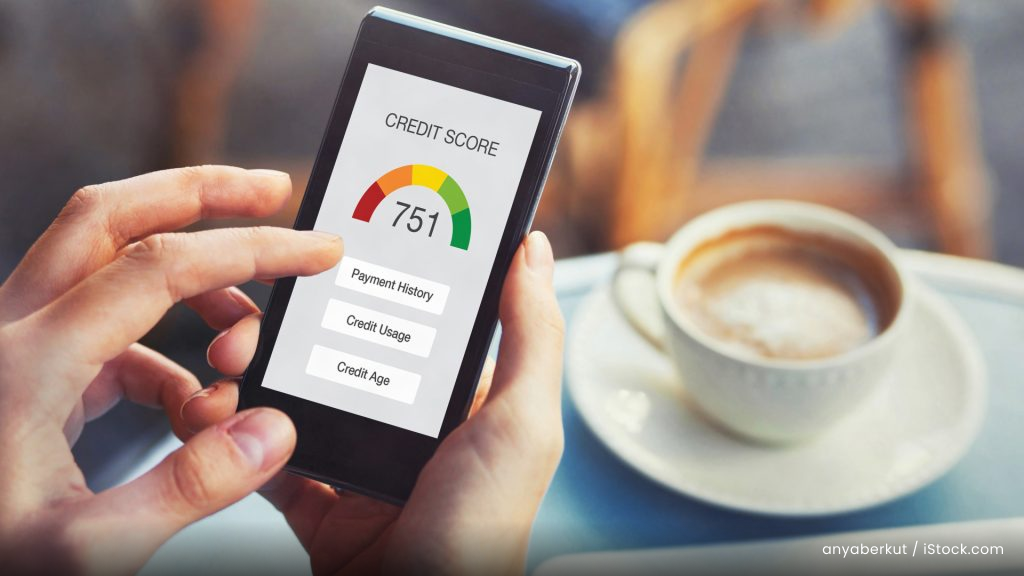Does It Hurt Your Credit to Close a Credit Card?

If you’ve got plans to close a credit card, you may wonder if closing this card will hurt your credit. The answer depends on your financial situation and the circumstances.
Generally speaking, closing a credit card can potentially harm your credit score, but it doesn’t have to. Here’s what else you should know about closing a credit card and how it affects your credit score.

400+ Credit Cards
Analyzed independently across 50+ data points in 30+ product categories

Reviewed
By a team of credit card experts with an average of 9+ years of experience

Trusted by
More than one million monthly readers seeking unbiased credit card guidance
CardCritics™ editorial team is dedicated to providing unbiased credit card reviews, advice and comprehensive comparisons. Our team of credit card experts uses rigorous data-driven methodologies to evaluate every card feature, fee structure and rewards program. In most instances, our experts are longtime members or holders of the very programs and cards they review, so they have firsthand experience maximizing them. We maintain complete editorial independence — our ratings and recommendations are never influenced by advertiser relationships or affiliate partnerships. You can learn more about our editorial standards, transparent review process and how we make money to understand how we help you make informed financial decisions.
How Closing a Credit Card Affects Your Credit Score
Several factors influence your credit score. According to FICO, here are the factors that make up your score for this particular scoring model:
- Payment history (35%)
- Amounts owed (30%)
- Length of credit history (15%)
- New credit (10%)
- Credit mix (10%)
When it comes to closing a credit card, there are two main factors to look at:
Amounts Owed
“Amounts owed” is also known as your credit utilization ratio. This is how much of your credit you are using in relation to the amount of credit available to you. So, if you’ve got $10,000 of credit across all of your accounts and have a $8,000 balance across all of your accounts, you’re utilization in 80%, which is considered high and could impact your credit score. FICO recommends you keep your credit utilization to around 30%.
Length of Credit History
Next up, your length of credit history is also affected when you close a credit card. If the average age of your credit accounts is 5 years old. Closing a credit card could shorten the average age of your accounts, especially if the card you close is one of your oldest. A shorter credit history can lower your credit score since lenders tend to favor borrowers with a longer track record of
Does Canceling a Credit Card Affect Your Credit Score Immediately?
When you cancel a credit card, the effects on your credit score are not always immediate. The impact on your score usually depends on the timing of when the credit card issuer reports the account closure to the credit bureaus. This process can take anywhere from a few days to a few weeks.
Once the account closure is reported, you may notice changes in your credit score, particularly if the account was a significant factor in your credit history or credit utilization ratio. However, the impact on your average credit age or available credit might take longer to show drastic change.
In many cases, these changes are mostly temporary. The important part is to continue managing your credit well, and your score should recover over time. If you’re looking to improve your credit score or are building credit from scratch, opening one of the best credit cards for bad credit and using it responsibly (paying your bill in full and on time each month) can give your credit score a boost.
Should You Close a Credit Card? Weighing the Pros and Cons
| Pros of Closing a Credit Card | Cons of Closing a Credit Card |
|---|---|
| Helps avoid annual fees on unused cards. | Can negatively impact your credit score. |
| Simplifies finances and reduces clutter. | May decrease your available credit, increasing your credit utilization ratio. |
| Eliminates the temptation to overspend. | Could shorten your credit history, affecting your average credit age. |
| Reduces the risk of fraud on an inactive card. | Loss of card-specific benefits, such as rewards or cashback perks. |
What Happens If I Close a Credit Card That Has an Outstanding Balance?
Closing a credit card with an outstanding balance means it may no longer contribute to your available credit, which can raise your credit utilization ratio and potentially lower your credit score. Closing a credit card doesn’t erase the debt attached to it, but it can be a way to keep you from increasing your card balance and racking up more debt.
Before closing the card, consider options like paying off the balance in full to avoid interest charges or transferring the balance to a card with a lower interest rate. These options may help you better manage your debt while minimizing negative impacts on your credit.
How Much Does Closing a Credit Card Hurt Your Credit?
Closing a credit card can impact your credit score in several ways, depending on whether you pay off the balance or transfer it. If you close a card without paying off the balance, your credit utilization ratio will likely increase.
Closing a Card With a Balance
Without balance repayment or transfer, this rise in utilization could drop your score by 10 to 50 points on average, though the impact varies depending on your personal financial circumstances.
Closing a Card Without a Balance
On the other hand, if you pay off the balance or transfer it to a card with a lower rate, the effect on your credit score may be minimal. Some evidence suggests that paying off debt can even improve your score slightly over time, as on-time payments and lower utilization are top factors for most credit scoring models.
Does Closing a Credit Card Affect Your Credit Mix?
Closing a credit card can affect your credit mix because it reduces the different types of credit in your profile, which is one factor used to calculate your credit score.
A healthy credit mix, which might include credit cards, auto loans and mortgages, shows lenders that you can manage different types of credit responsibly. Losing or reducing this diversity could slightly lower your score, especially if the card you close is your only revolving credit account.
What Are the Alternatives to Closing a Credit Card?
If you aren’t quite ready to close a credit card, consider one or more of the following tactics to keep your account open:
- Pay in full: Fully pay the card balance off to avoid paying interest and fees.
- Downgrade: Consider downgrading your credit card to a no-fee version (if possible) to avoid annual fees while keeping the account open.
- Freeze or lock your card: Freezing or locking your credit card means you can’t put additional charges on it, though digital wallet and recurring charges may still go through.
- Minimal usage: Maintain the account by making small occasional purchases and paying them off monthly.
Is It a Good Idea to Close Your Credit Card?
Closing a credit card can drop your credit score up to 50 points. Before closing the card, consider what your credit score is right now and if a drop in your credit score could affect your upcoming financial goals.
However, if closing your credit card will help you better manage your debt, it may be worth the hit your credit score takes. Practicing good credit habits can help you get your score up again.
Frequently Asked Questions about Closing a Credit Card
Does canceling a credit card hurt your credit?
Yes, canceling a card can hurt your credit by increasing your credit utilization and reducing your credit history length, both of which can impact your score.
How long does it take for a credit card to show up on your credit report after closure?
It typically takes 30-60 days for a closed credit card to reflect on your credit report, depending on your credit card issuer’s reporting cycle.
Can you close a credit card without affecting your credit score?
It’s unlikely. Closing a card often impacts your score by increasing credit utilization or shortening your credit history length.
Is it better to close an old or new credit card?
Closing an old card hurts more since it shortens your credit history. Newer cards have less impact on your “average age of accounts” but may still affect your credit utilization.
Will closing a credit card affect my chances of getting approved for a loan?
Yes, it can. Closing a card may increase your credit utilization or lower your score, which could impact loan approvals or terms.
- How Closing a Credit Card Affects Your Credit Score
- Does It Affect Your Credit Score Immediately?
- Weighing the Pros and Cons
- Closing a Credit Card That Has an Outstanding Balance
- How Much Does It Hurt Your Credit
- Does It Affect Your Credit Mix?
- Alternatives to Closing a Credit Card
- Is It a Good Idea to Close Your Credit Card?
- Frequently Asked Questions about Closing a Credit Card












